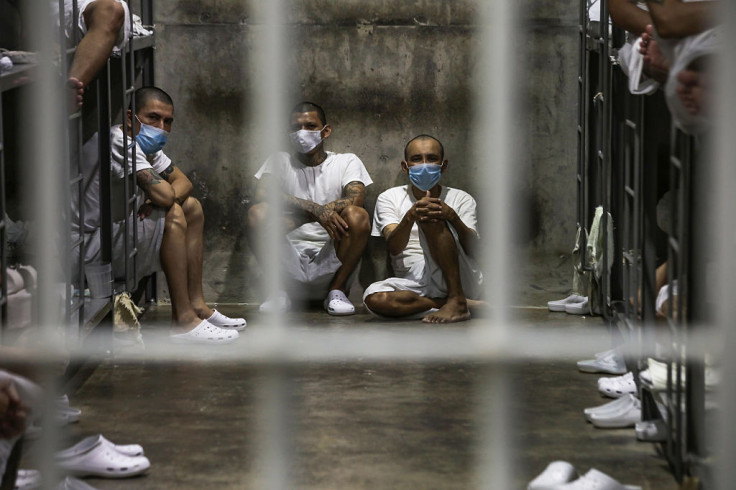
A few weeks after President Donald Trump took office, his administration reached an agreement with El Salvador allowing the country to receive deportees at the Terrorism Confinement Center (CECOT), a massive prison capable of holding thousands of inmates.
Although the deal was reached in early February, the first groups of Venezuelan deportees did not arrive until March and April. According to a recent report by Human Rights Watch, every detainee reported being beaten and subjected to abuse from the moment they arrived at CECOT until their release.
One testimony cited in the report came from a man identified as Gonzalo, who arrived in El Salvador with 251 other Venezuelans between March and April. He said that upon arriving at CECOT, guards forced the group to kneel as their heads were shaved.
"The prison director told us, 'You have arrived in hell,'" Gonzalo said. "The guards beat me many times, in the prison hallways and in the punishment cell. They beat us almost every day."
Human Rights Watch, in partnership with Cristosal, a regional human rights organization based in Central America, gathered testimony from 40 victims and collected additional accounts from relatives, friends, and attorneys who detailed months of alleged abuse against Venezuelan detainees at CECOT.
Of the 252 Venezuelans sent to the prison by the Trump administration, 130 have filed legal complaints against the governments of both the United States and El Salvador.
The report includes photographs of injuries, scars, and other evidence consistent with torture, along with accounts of sexual violence and other mistreatment.
Those interviewed described routine beatings by guards and riot police, both in prison corridors and in solitary confinement areas, including a section known as "the Island." Detainees said they were assaulted during cell inspections for minor infractions such as speaking loudly, showering outside scheduled times, or requesting medical attention.
Some detainees reported being beaten during visits from officials, including U.S. Secretary of Homeland Security Kristi Noem in March and two visits from the International Committee of the Red Cross (ICRC) in May and June, as well as after prison protests in April and May.
In one case, a man identified as Daniel B. said officers beat him after he spoke with ICRC staff members in May. He was taken to "the Island," where he was assaulted by prison staff. His nose was broken, causing heavy bleeding.
"They kept hitting me in the stomach, and when I tried to breathe, I started to choke on the blood. My cellmates shouted for help, saying they were killing us, but the officers said they just wanted to make us suffer," he said.
Human Rights Watch and Cristosal said the abuses appear to be part of a practice intended to subjugate, humiliate, and discipline detainees through severe physical and psychological suffering. Every former detainee interviewed reported experiencing serious physical and psychological abuse on a near-daily basis.
The report also documents at least three cases of sexual violence. One detainee said guards took him to "the Island," beat him, and forced him to perform sexual acts.
"They played with their batons on my body," the man said.
Human Rights Watch noted that sexual violence is likely underreported due to stigma.
Former detainees told Human Rights Watch and Cristosal that they continue to experience psychological trauma.
In Venezuela, they underwent medical examinations, official media interviews, and background checks before returning home, although none have received psychological support to address the trauma they endured at CECOT.
"I feel like I have lost everything...the time I didn't spend with my daughter. We lived in fear, thinking that every time they came into the module it was to beat us," a man identified as Javier L. said.
© 2025 Latin Times. All rights reserved. Do not reproduce without permission.










